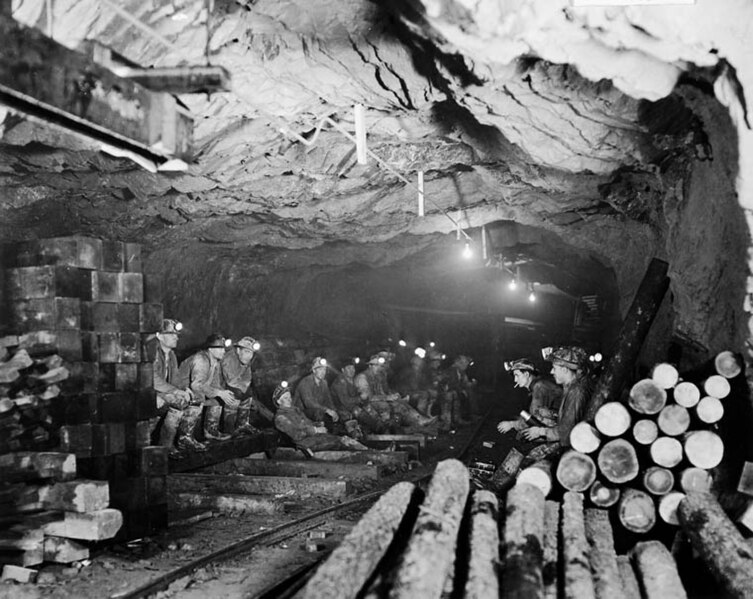
Henry Green is a student at Harvard Law School.
In today’s News and Commentary, the 7th Circuit questions the relevance of NLRB precedent after Loper Bright, mining unions seek to defend a rule about silica dust exposure, and Kilmar Abrego Garcia’s union speaks out.
Bloomberg reports that in an oral argument at the 7th Circuit, Judge Frank Easterbrook appeared to support Amazon’s challenge to a 2024 NLRB ruling and to question the relevance of Board precedent to interpreting the National Labor Relations Act. The NLRB held last year that Amazon’s “Off Duty Access” rule, which granted the company discretion about when to restrict access for off-duty workers, violated the NLRB’s test from Tri-County (1976). At oral argument, Judge Easterbrook said that given the Supreme Court’s Loper Bright (2024) decision, he was “not interested in board law” in deciding whether Amazon’s policy violated the NLRA. Easterbrook suggested the Board had wrongly focused on whether Amazon’s rule was consistent with Tri-County, when the relevant question is whether it is consistent with the NLRA. “The board can interpret the statute. We can interpret the statute… But all the board seems to have done is interpret its decision and forgot about the statute,” Easterbrook said. Bloomberg reports that the other two judges on the 7th Circuit panel “mostly remained silent” during the oral argument.
The United Mine Workers of America and the United Steelworkers have filed motions seeking to intervene in an 8th Circuit challenge to a rule about exposure to silica dust. The Mine Safety and Health Administration (MSHA) said in a filing it “takes no position” on a motion by mining trade groups to stay the rule, after MSHA paused implementation of the rule last week. The rule – promulgated by the Biden MSHA last year – calls for a 50% reduction in the amount of breathable silica dust in certain mines. Silica dust is more toxic than coal dust and a cause of black lung disease, per In These Times. The silica regulation had been poised to take effect for coal mine operators on April 14, but the MSHA announced last week that it would delay enforcement of the rule until August 18, 2025. The unions wrote in their motion that MSHA’s recent filings “portend a tenuous and uncertain future for the Silica Rule,” and argued that they should be allowed to intervene to defend the rule.
Kilmar Abrego Garcia, who was reportedly deported to El Salvador’s CECOT prison due to an “administrative error,” is a first year apprentice in a Maryland Sheet Metal Workers union, SMART Local 100. SMART officials have repeatedly spoken out in support of Abrego Garcia over the past few weeks. On March 31, SMART General President Michael Coleman issued a statement calling Abrego Garcia “Kilmar, our Local 100 brother.” SMART held a rally in support of Abrego Garcia and his family in Maryland on April 4. On April 10, SMART’s Transportation Division released a statement declaring “unwavering solidarity” with Abrego Garcia, calling his detention at CECOT an “egregious violation of our brother’s rights.” Sean McGarvey, the president of North America’s Building Trades Unions (NABTU), also recently called for Abrego Garcia’s return to the United States.






Daily News & Commentary
Start your day with our roundup of the latest labor developments. See all
February 8
The Second Circuit rejects a constitutional challenge to the NLRB, pharmacy and lab technicians join a California healthcare strike, and the EEOC defends a single better-paid worker standard in Equal Pay Act suits.
February 6
The California Supreme Court rules on an arbitration agreement, Trump administration announces new rule on civil service protections, and states modify affirmative action requirements
February 5
Minnesota schools and teachers sue to limit ICE presence near schools; labor leaders call on Newsom to protect workers from AI; UAW and Volkswagen reach a tentative agreement.
February 4
Lawsuit challenges Trump Gold Card; insurance coverage of fertility services; moratorium on layoffs for federal workers extended
February 3
In today’s news and commentary, Bloomberg reports on a drop in unionization, Starbucks challenges an NLRB ruling, and a federal judge blocks DHS termination of protections for Haitian migrants. Volatile economic conditions and a shifting political climate drove new union membership sharply lower in 2025, according to a Bloomberg Law report analyzing trends in labor […]
February 2
Amazon announces layoffs; Trump picks BLS commissioner; DOL authorizes supplemental H-2B visas.